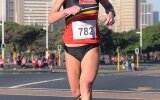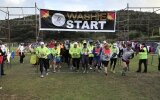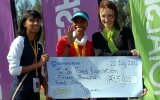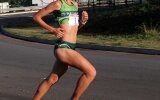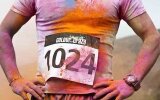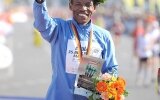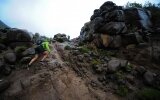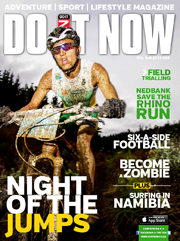- Magazine
- #readityourway
- Weekly Stories
- #shareyourstory
-
Adventure
- Abroad Travelling
- Africa Travelling
- Events
- Expos & Shows
- Festivals
- Fishing
- Free Diving
- Gliding
- Horse Riding
- Inspiring People
- Islands Travelling
- Kite/Windsurfing
- Motorbiking
- Motorised Water Sports
- Mountaineering
- Mountain Biking
- Off-road 4x4
- Off-road Motorbiking
- Paddling
- Performance Driving
- Photography
- Rock Climbing
- Rollerblading
- Sailing
- Scuba Diving
- Skateboarding
- Skydiving
- Snowboarding & Skiing
- Surfing
- Swimming
- Trail Running
- Wakeboarding
- Waveski Surfing
-
Sport
- Adventure Racing
- Fishing
- Free Diving
- Gliding
- Health & Fitness
- Horse Riding
- Inspiring People
- Kite/Windsurfing
- MMA
- Motorbiking
- Mountain Biking
- Multi-sport
- Off-road 4x4
- Off-road Motorbiking
- Paddling
- Performance Driving
- Photography
- Road Cycling
- Road Running
- Rock Climbing
- Rollerblading
- Sailing
- Scuba Diving
- Skateboarding
- Skydiving
- Snowboarding & Skiing
- Surfing
- Swimming
- Rugby
- Trail Running
- Triathlon
- Wakeboarding
- Waveski Surfing
- Lifestyle
- Calendar
Conquering the Comrades Marathon
Words: Sarah Kobal | Photos: Debbie Aird Photography & Warren Goldswain / Shutterstock.com
Category:
Road Running
Around 18,000 athletes will be competing at the Comrades Marathon, the world's largest and oldest ultra-marathon race, which is taking place in KwaZulu-Natal on Sunday, 2 June 2013.
Now in its 88th year, this marathon starts from City Hall in Durban at 05h30 and finishes at the Cricket Oval in Pietermaritzburg at 17h30. The distance for this year's race is approximately 86.9 km, but due to the race alternating between the 'up' run (89 km), starting from Pitermaritzburg, and the 'down' run (87 km) that starts from Durban, it varies in distance every year.
History
This ultra-marathon was started in 1921 by World War I veteran Vic Clapham who asked for permission to stage a 56 mile race between Pietermaritzburg and Durban under the name of the Comrades Marathon and for it to become a living memorial to the spirit of the soldiers of the Great War. So with this in mind the Comrades Marathon was born with a goal to 'celebrate mankind's spirit over diversity'.
The Comrades Marathon
Starting off with 34 runners, of which only 18 runners completed the Comrades Marathon, this annual race (with the exception of a break during World War ll) has grown to a staggering 18,000 runners, with more than 300,000 runners who have completed the race up until 2012! Bill Rowan won the first Comrades Marathon in a time of 08h59, and his name is used for one of the medals.
Qualifying criteria
Being such an incredibly tough ultra-marathon (with a total of seven athletes that have sadly passed away whilst running this race), only athletes over the age of 20, who have completed a qualifying race, can run the Comrades Marathon. To complete the race, an athlete has to reach five cut-off points in specified times as well as not exceed 12 hours overall. The route is clearly marked with signs so that the athletes are aware of how many kilometres they have left to complete the race. Athletes run along the roads of KwaZulu-Natal, which is marked by 'The Big Five' set of hills appearing in the following order; Cowies Hill, Field's Hill, Botha's Hill, Inchanga, and finally, Polly Shortts.
What to expect
After 30 km, your body will start eating away at your protein stores once it has used up all the carbohydrate supplies, as well as sweat out roughly 4,5 litres of liquid. As a result of this, athletes are likely to lose between three to five kilogrammes during the race. To avoid losing too many carbohydrates and fluid, make sure you balance the carbohydrates and protein consumption during the race, as well as drink plenty of water.
Your Achilles tendons will rise roughly 55,000 times on each leg! Fourteen percent of the athletes will experience dizziness during the race. Hydration is therefore important, as the average athlete's body temperature will rise to 40 degrees celsius within the first two to three hours of the race. A good way to avoid heatstroke is by throwing some water onto your head now and then.
Cramping is most likely to occur during the run but athletes can avoid this by taking Slow-Mag tablets a few months before the run and blisters are common once your stride becomes less efficient. One can easily avoid them by wearing moisture-wicking socks, wearing decent running shoes that have at least 100 km mileage, and using petroleum jelly on your feet and in-between your toes. Lastly, the most common places of chaffing are the thighs and nipples, but there are easy solutions for this. Use plasters for the nipples and Vaseline for any high-chafe areas.
Handy tips post race
After running more than 80 km, your body will definitely feel it the next day. The best idea once you have crossed the finish line is to consume plenty refreshments, shower, dress warmly, wear your medal (be proud of your accomplishment), take pictures and collect your tog bag. The first three are extremely important as your body isn't in a very good state and therefore has very little fight left in it. It is normal to feel nauseous, dizzy, tired, and sore after this enduring race, so lie down for a while with your feet elevated.
As your body has suffered, milk is said to be one of the best solutions for rehydration, as it is bland (which is great after a day of nothing but sweet things) and high in protein, which your body needs. The next step is to find something to eat as this will speed up the recovery process. Lastly, make sure you urinate within two hours of completing the race as this is a sign that your kidneys are functioning correctly. If you do not urinate by the next day, see the doctor as your kidneys might be damaged from this strenuous race.
Although this race is tough on the body, knowing that you have competed in and completed the world's longest ultra-marathon makes it so worth all the blood, sweat and tears. And of course, there's the bragging rights that go with it for months, even years to come.
Good luck to all the competitors for this upcoming Comrades Marathon!
Medals
• Gold medals: The first 10 men and women.
• Wally Hayward medals (silver-centred
circled by gold ring): 11th position to
sub 6hrs 00min.
• Silver medals: 6hrs 00min 01sec to
sub 7hrs 30min.
• Bill Rowan medals (bronze-centred circled
by silver ring): 7hrs 30min to sub 9hrs 00min.
• Bronze medals: 9hrs 00min to
sub 11hrs 00min.
• Vic Clapham medals (copper): 11hrs 00min
to sub 12hrs 00min.
Course Records
• Men – Down run – 2007:
Leonid Shvetsov (Russia) 5:20:49
• Mens – Up run – 2008:
Leonid Shvetsov (Russia) 5:24:49
• Women – Down run – 1989:
Frith van der Merwe (South Africa) 5:54:43
• Women – Up run – 2006:
Elena Nurgalieva (Russia) 6:09:23
Most Wins
• Men: Bruce Fordyce 9
• Women: Elena Nurgalieva 7
Qualifying distance and times
In order to see if you are qualified to enter into the Comrades Marathon, here is the distance of race times:
42,2 km: sub 05:00:00
48-50 km: sub 06:00:00
52-54 km: sub 06:30:00
56 km: sub 07:00:00
60 km: sub 07:40:00
64 km: sub 08:20:00
80 km: sub 10:30:00
100 km: sub 13:30:00
*Information sources:
www.wikipedia.com | www.comrades.com
www.alsoranrunners.info | www.mh.co.za
Related content
|
|
|
|
|
|
|
|
|
|

